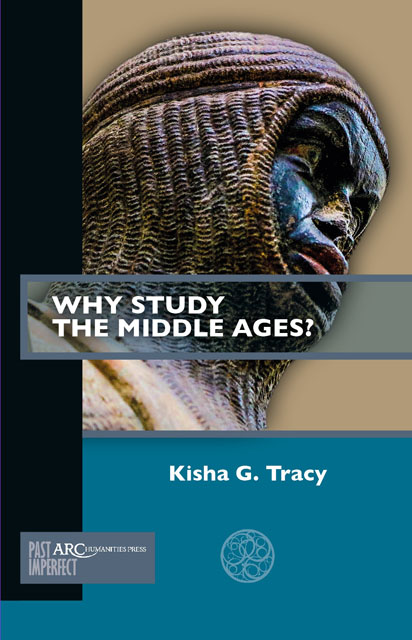Book contents
- Frontmatter
- Contents
- Introduction: The Middle Ages and the Liberal Arts
- Chapter 1 The Middle Ages and the Humanities
- Chapter 2 The Middle Ages and STEM
- Chapter 3 The Middle Ages and the Social Sciences
- Chapter 4 The Significance of Studying the Middle Ages
- Conclusion: The Connections among the Arts
- Further Reading
Chapter 3 - The Middle Ages and the Social Sciences
Published online by Cambridge University Press: 06 December 2022
- Frontmatter
- Contents
- Introduction: The Middle Ages and the Liberal Arts
- Chapter 1 The Middle Ages and the Humanities
- Chapter 2 The Middle Ages and STEM
- Chapter 3 The Middle Ages and the Social Sciences
- Chapter 4 The Significance of Studying the Middle Ages
- Conclusion: The Connections among the Arts
- Further Reading
Summary
For over two centuries, American slaveholders, the Knights of the Ku Klux Klan, Nazi Germany, and today's white supremacist self-styled “alt-right” have all promoted a twisted idea of the Middle Ages that props up their white-supremacist fantasies. And unfortunately, their view of the Middle Ages has trickled into the groundwater of the broader popular historical consciousness.
Paul B. Sturtevant, “Race, Racism, and the Middle Ages: Tearing Down the ‘Whites Only’ Medieval World,” The Public Medievalist, February 7, 2017In light of recent white supremacist and pro-Western civilization events and rhetoric across the United States, the connection between the Middle Ages and the social sciences is more important than ever. Containing disciplines that focus on how humans interact, the social sciences give us insight into multiple aspects of society. Although the history of social science is generally thought to begin in the Age of Enlightenment, the issues it studies and its methodologies are timeless and universal. A resurgence of the use of the Middle Ages to “justify” white nationalism, racism, ableism, misogyny— and any number of other -isms—in American culture can be addressed through the social sciences: sociology, political science, geography, education, economics, among other disciplines. Medieval social scientists explode popular beliefs, such as “there were no people of color in the Middle Ages and therefore they should not be included in fantasy-based video games,” which is a matter of representation, or “there were no positive social views of the disabled in the Middle Ages.”
A surprising number of popular misconceptions about the Middle Ages feed modern social dynamics, which was tragically on display at the Charlottesville “Unite the Right” rally in 2017 and the January 6, 2021 attack on the United States Capitol building. Confusing misinterpretations of the term “medieval” leads to charged rhetoric that perpetuates misinterpretations and conflict.
On one hand, the term “medieval” is used as a pejorative adjective, deployed when an author or speaker wants to imply “primitive” or “barbaric.” So, for instance, articles about the increased spread of diseases among the homeless were published in 2019 in such venues as The Atlantic, Forbes, healthline, and wbur that labeled typhus and tuberculosis as “medieval.”
- Type
- Chapter
- Information
- Why Study the Middle Ages? , pp. 69 - 90Publisher: Amsterdam University PressPrint publication year: 2022

